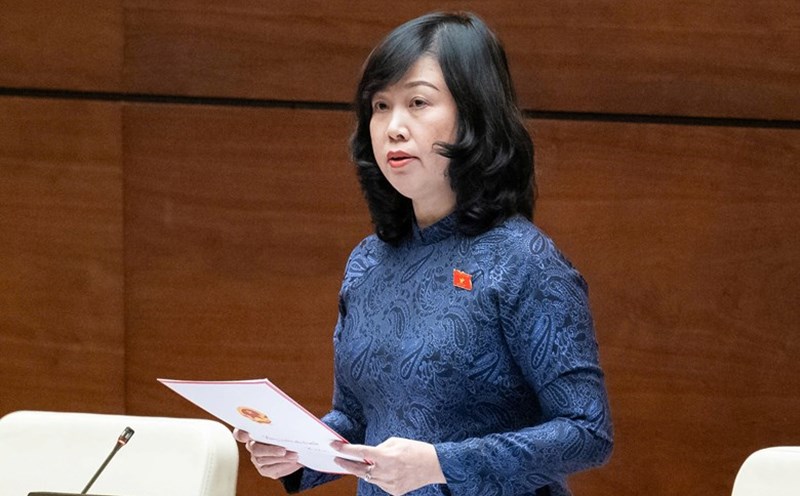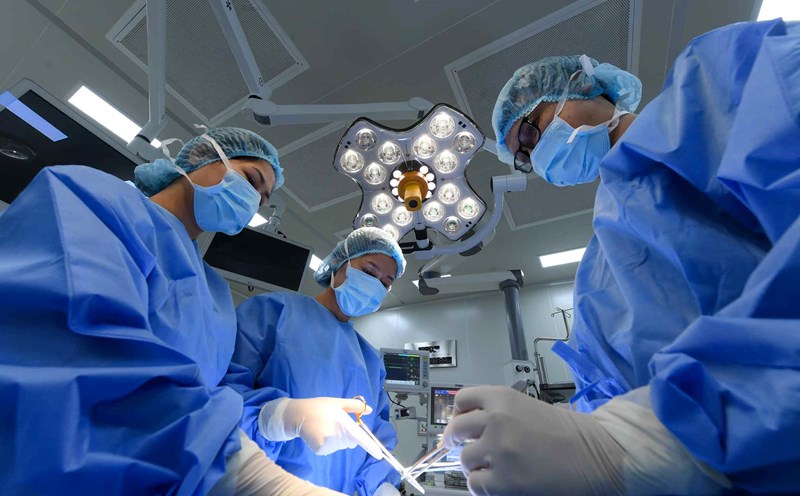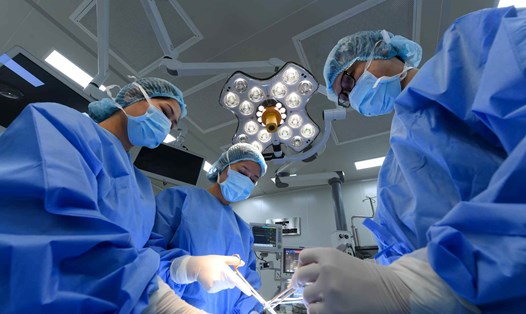The Ministry of Health has submitted a document on the issuance of a Decree regulating preferential allowances according to profession for civil servants and employees working at public health facilities.
Accordingly, the preferential allowance is applied at different levels. The highest is the allowance of 70% applied to: Officials who are regularly assigned to directly do the following jobs: Testing, examining and treating, caring for people with leprosy, tuberculosis, mental illness, HIV/AIDS, people with group A infectious diseases; Forensic examination, forensic psychiatry, pathological anatomy... People working in laboratories requiring biosafety level III; Officials with professional qualifications as regular doctors, working directly at health stations in communes in regions II and III in ethnic minority and mountainous areas; Officials who are regularly assigned to directly do medical expertise in the field of preventive medicine.
The lowest allowance level is 30-40% applied to civil servants who are regularly assigned to directly perform tasks such as testing; medical examination; treatment; infection control, patient care, rehabilitation; functional exploration; medical assessment; traditional medicine; pharmaceuticals, cosmetics; food safety, nutrition, medical equipment...
For civil servants who do not directly perform medical expertise at general medical service units (except for the subjects specified in Point c, Clause 5 of this Article), civil servants performing medical expertise at agencies, units, and schools, the head of the unit shall consider and decide based on the specific nature of the work and revenue sources, but not exceeding 30% of the current salary scale and grade plus leadership position allowance and seniority allowance beyond the framework (if any) of the beneficiary.
According to this proposal, the preferential allowance for officials assigned regularly and directly to do infection control work is applied at 40%.
Ms. Phan Thanh Loan, working at a medical facility, shared: Every day, the staff of the Infection Control Department still work diligently, exposed to many dangers that few people see (chemicals, machine noise, fabric dust, hazardous waste, monitoring the environment with the risk of infection...), Infection Control is also the first department responsible for the unit's environmental protection work (waste management, environmental sanitation, discharge...). Looking back at the COVID-19 pandemic, we can clearly see the importance of Infection Control work. Hopefully, in the near future, we will receive appropriate incentives.
Currently, recruiting medical staff to work in the Infection Control Department is difficult because the work is hard, has many potential risks, and the income is low, so no one wants to work in the Infection Control Department.
The representative of the Hanoi Infection Association said that if the preferential allowance of the Infection Control Department is ranked on par with that of regular clinical departments, it would be unfair and inconsistent with the policy of encouraging and motivating people working in preventive medicine of the Ministry of Health and the Government.











